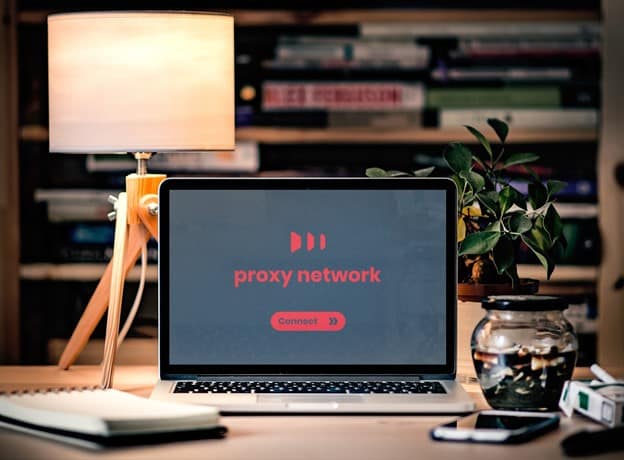Image from Pixabay
Although proxies servers are very popular in the computer industry, not many internet users understand what they are. But then, whether you interact with computers daily or rarely, it is necessary to gain insight into how they operate.
Besides, it is also necessary to know how and where you may encounter proxies. In this article, you will learn what proxies are, where you can use them, and for what purposes.
Here is everything you need to know about proxies.
What Are Proxies
Before you get into the details, it is necessary to understand what the term proxy means. In a layman’s language, a proxy is an intermediary. It connects you, the internet user, with the websites you’re accessing through your computer.
A proxy serves you with an IP address that masks your real device’s address. Meaning, any application, website, or any other digital service you’re using cannot monitor your actual device. Therefore, anonymity is one of the significant reasons why proxies are popular among internet users.
There are two major types of proxies – shared and dedicated proxies. Although they help hide your identity, not all proxies are safe to use. It is vital to understand what you’re using and determine how secure it is to ensure you’re not exposing your data.
A shared proxy doesn’t belong to you solely. It is public and free as anyone can use it without restriction. A dedicated proxy, on the other hand, belongs to an individual. That’s to say you do not share any particular resources with other internet users.
Some of the resources shared in proxies include IP addresses, bandwidth, and speed. It is advisable to avoid shared proxies as much as you can to secure yourself. Hackers use them as hunting grounds to steal information from unsuspecting internet users.
Where to Use Proxies

There are various situations where proxies come in handy. The section below should be a significant reference to where and how you can use proxies to your benefit. The applications can be either business or home-related, depending on the point of need.
Here are ways to use proxies.
- Restricting Access
One of the noteworthy features that proxies come with is access restriction. They play a critical role for parents looking to safeguard their kids from harmful online content. You can identify websites or pages that you do not want your kids to access and configure the proxies to restrict any access.
Besides, organizations too benefit a lot from using proxies. If you don’t want your employees to access specific sites during work hours, you configure your proxy the same way. Consequently, it helps to secure your data and increase productivity at work by reducing employee distractors.
- Security
As mentioned earlier, proxies are as safe but the type you use matters. It would be best if you avoided shared proxies before even thinking about external safety. Once you have the right (dedicated) proxy, you can trust it to protect you from potential external threats such as hacking and data breaches.
With danger looming all over the internet, the features or abilities of proxies are your best bet to safety. For example, they can help encrypt your files to prevent unauthorized access. They also hide your IP address means better security as it mitigates the risk of using a real IP address.
- Easy Web Scraping
In recent times, businesses are using web scraping to conduct their market analysis. Previously, accessing user data was a nightmare with lots of websites to analyze. Web scraping has simplified that, but digital marketers weren’t out of the woods until proxies happened.
Without a proxy, most websites will block your scraping software. Organizations and individuals are setting their websites to recognize and bar web scrapers from scanning their content. Thus, a proxy hides your IP and uses different IPs when sending requests to various websites.
- Accessing Restricted Content
Location-specific content can be a nightmare to access. Many organizations and governments configure their websites to reject requests from specific locations or countries. Users from allowed regions enjoy uncensored access to the website or application while you get blocked.
A proxy is the best tool to help you access such restricted content. You can configure its address to an allowed location and use it to access the website. A proxy makes you look like you’re in the country permitted to access the website without monitoring.
- Improving Loading Speeds
Sometimes accessing websites can take longer if there’s too much traffic or requests. If you’re in such a situation, third-party help to speed up this process should be the solution. You can have a separate IP address from a proxy to help you speed up the website.
Besides improving the network and speeding the website for you, a proxy will help you save bandwidth. It stores a copy of visited pages in cache and provides it to you at request. Meaning, it doesn’t need to send a request to the website, thus saving you valuable time and money.
- Social Media Marketing
Businesses with an online presence need social media marketing than anything else. If you own one, you can use bots to spur online conversations around your product or brand. The bots access your social media pages and independently interact with your audience as a real person would.
However, that isn’t something social media channels are ready to encourage. Once noticed, the bots deployed will get blocked, and no more interaction will happen. Proxies assign new IP addresses to bots every time they want to access a website. With new IP addresses, tracking them down will be difficult.
Conclusion
Proxies play a vital role in keeping internet users safe from attackers. You can use them to access restricted content from other websites, especially for research. Additionally, a proxy helps you increase loading speeds and browse websites anonymously. Proxies are, therefore, becoming necessary for internet browsing, particularly for the purposes mentioned above.
